The Supernatural World of the Anglo-Saxons: Gods, Folklore and the Pagan Roots of Christmas and Halloween
£2.80
The Supernatural World of the Anglo-Saxons covers all aspects of Anglo-Saxon Paganism and folklore, including the Anglo-Saxon calendar. It is written with great knowledge and passion, exploring the Pagan Roots of Christmas and Halloween, of Wōden, the Wild Hunt and all the ancient Yule traditions. The Anglo-Saxons gave their name to England. Learn who they were, what they believed, who their Gods and Goddesses were. Discover the mythological beings found in Bēowulf and all across England’s ancient landscape, and learn about the Pagan roots of Morris Dancing, along with other dances and Pagan traditions.
Also includes German folklore such as Holda, Perchta and Krampus.
Amazon Reviews for The Supernatural World of the Anglo-Saxons:
…Wonderful!!
…Another masterpiece from my favorite author!
…Absolutely enthralling, brilliant read!
…Superb content based on Anglo-Saxon lore
…A incredible source of Anglo-Saxon traditions and folklore compiled in a simple to read book.
…Gods, faeries, people and events are some the topics included. Those shed a light on how the Anglo-Saxon world was.
…Great chapters involving some of the world’s most infamous traditions such as Halloween and Christmas.
…A great read that might need an index because of the vast amount of the subjects covered.
Read more
Additional information
| Language | English |
|---|---|
| File size | 1294 KB |
| Text-to-Speech | Enabled |
| Screen Reader | Supported |
| Enhanced typesetting | Enabled |
| X-Ray | Not Enabled |
| Word Wise | Enabled |
| Sticky notes | On Kindle Scribe |
| Print length | 137 pages |
| Page numbers source ISBN | 1973588463 |

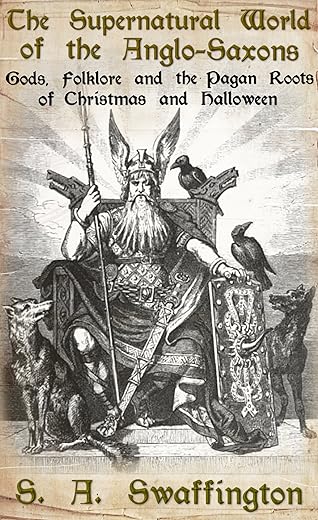
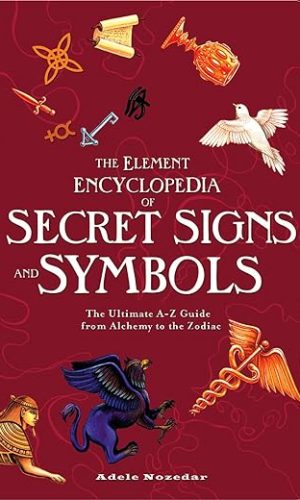

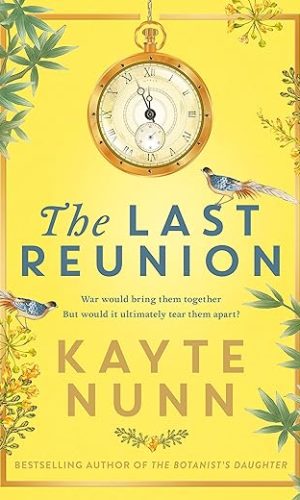


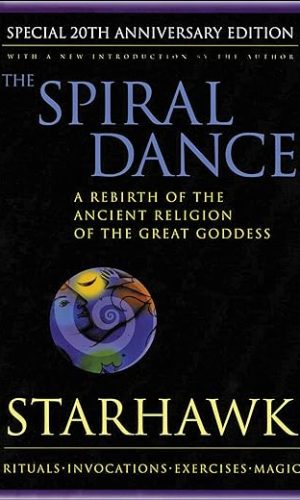
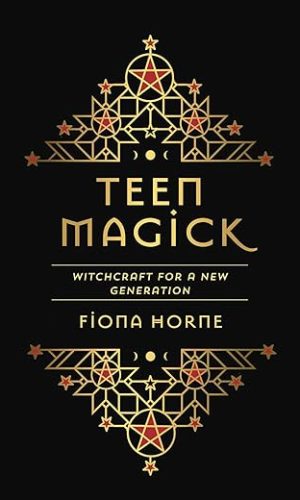
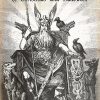
by Amazon Customer
Some useful facts, but you get little you wouldn’t get from a judicious Wikipedia search. Oddly structured, but it’s the little asides that strike most.
Unreferenced where references are most needed, leading to questionable and unsupported assertions. Worryingly Anglo-Saxonist in parts, not least the dedication to ‘Our People’; who could the author mean here? The Saxons? Most English people would claim descent from many other cultures since and before. Or is this for modern readers; in which case who are ‘our people’?, and who aren’t? We are even encouraged to venerate Arminius just after having his treatment of prisoners described to us. There was a political movement in the 20th Century that venerated Arminius, and they treated captives pretty badly too. [I have subsequently checked and discovered the author is a fascist. No wonder he knows nothing of history; they never do!]
Perhaps the most glaring affront to decency was the repeated implication that the principle motive for the Blotmonath slaughter/sacrifices was kindness to animals, as opposed to food production and a transaction with the gods for divine protection.
It’s also, though not surprisingly, anti-Christian. The problem with this is that it belies the complexity of history, not least the fact that Christianity itself preserved what little we know of English paganism. It also implies a sinister exterior force, as opposed to a seemingly bloodless charismatic conversion (in England, at least). I suppose this is based on your typical fascist’s repeated insistence that there was a before time that was great, then something foreign happened and it all went down hill. [Yawn].
It is implied that (via a reference to anti-Pagan persecution from the Church) Parliament’s banning of Christmas under the Protectorate was an anti-Pagan measure, as opposed to an attempt to route out idolatrous practices within Christianity (who’s practitioners would not have been aware of their indebtedness to paganism).
Anti-Christian authors also seem to think the fact that Christians deliberately usurped pagan festivals and traditions in order to aid conversion is more controversial a point than it is. The Church has never denied having done so. The content of belief is more important than dates of festivities or the activities used to celebrate them. I guess some neo-pagans are just resentful it worked so well!
But the real crime is the uncited assertions that I suppose we are to swallow based on the confidence with which they are dished out. Frankly you lost me at ‘red baubles are blood drops and tinsel is frosty spiderwebs’. Whilst I’ll buy decorating trees is Germanic, I won’t buy that baubles and tinsel have not come in a range of colours since they were made, and I don’t think the Saxons had BnM anyway. Though it’s hard to properly critique an assertion with NO REFERENCES!
Overall an odd book. It’s too short, ill-researched and ill-cited to be reliable and informative; too poorly written to be enjoyable; and too fascistic to be credible. i wish I’d done my research and checked I wasn’t funding racism, but it’s worth hanging on to it for a giggle with norms.
by Amazon Customer
The first warning sign that this book is not going to have any content trustworthy enough to impart should come (if not from the general cheap construction of the book paper-wise and design-wise) from the lack of reference and poor grammar on the opening leaf. If an author cannot even proofread the baseless acclaim for their book or provide sources for who said their book was so brilliant then it should automatically be assumed that the rest of the content will be just as flawed.
The format of the book makes it difficult to find the information you are looking for even though there is a detailed contents page leaving almost no differentiation between headings, subheadings and the main text. The writing style is immature and does not suit a book which claims to be of any repute. There is no analysis of any research referenced or seemingly awareness of any interpretation other than the one of the author and what they personally believe.
There are sweeping statements made which presume what the reader will already know in far too personal a style; ‘We are taught in England that English history begins in 1066,’ an idea which has no support behind it and which does not address even in passing why this may be or the fact that others may (will and have) had different educational experiences to him even in the small country which England is.
One of the most disappointing facts is that the book seems somewhat well researched but because of the lack of interaction with sources used and referencing and the (aforementioned) immature writing style I find it difficult to believe any of the information given by this book. Indeed the majority of the book seems to be cobbled together from copy-pasted research.
The author also departs from the topic readily, stating (and this is not a challenge of the truth of the statement but of the relevance to what is being written- something taught in basic essay writing) after discussing Christmas traditions in England; ‘I would like to point out that many modern scented candles are made from toxic materials and are made from toxic materials and are very hazardous when burned…’ (and continues along this vein for about a quarter of a page) which is completely irrelevant to the point of this book as it is to discuss the pagan roots of Christmas, not current ways of celebrating which are harmful.
Perhaps most confusing is the belief that there needed to be a conclusion for this book and that this conclusion has little to do with the actual book itself.
In short- this is a well researched book which is extremely poorly referenced, written, designed and marketed and as such makes no worthwhile use of its research.
by “miss havisham”
Lots of old traditions explained, would have liked more in depth, but I’ve bought another book for that purpose.
by Margy
Such a riveting read. It’s so important to rediscover our history and mythos – this interlaces our geography with language, ancestry, tribe and culture. This is our folk soul – such knowledge should never be lost.
by Mr. Louis Des Preaux
This book answers so many questions about Anglo-Saxon and generally English traditions. Very well done. Give it to your families and remind them from whence they came.
by If
As someone wishing to learn about Samson mythology I wouldn’t recommend this book.
It is far too opinion based and at some points political.
by Waermund Grimraven
Fantastic read something new, I have been a Wodenist over 30 years & this was the first challenge I found in years very good.
by Rebecca
Really interesting book, got to me well